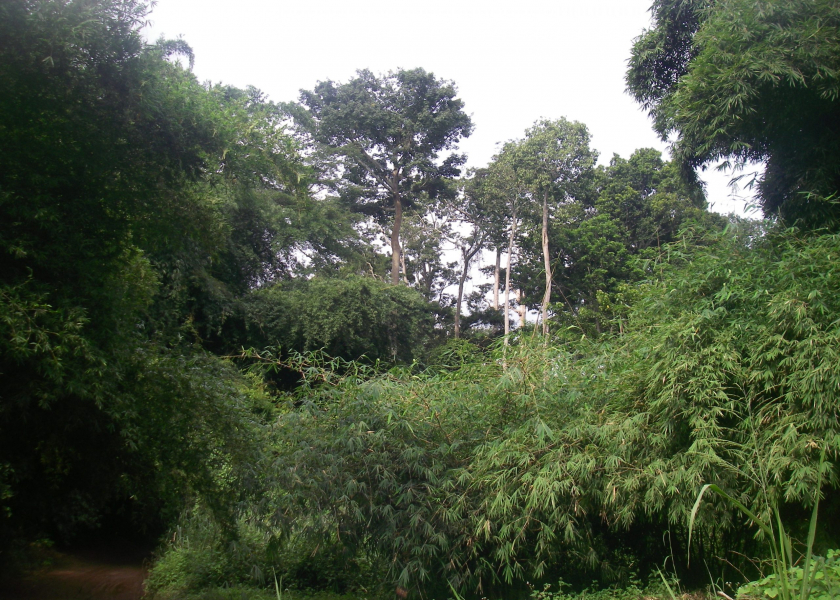CO2 Has Little Influence on Tropical Forest Growth
December 5, 2022

The amount of carbon dioxide (CO2) in the Earth’s atmosphere has only a small influence on changes in tropical ecosystems despite evidence of enhanced plant growth under elevated CO2 scenarios in greenhouse experiments, according to a new international study.
That means it’s unlikely that tropical forests will expand in response to rising greenhouse gas levels, an outcome that some had hoped might lead to increased CO2 storage in tropical ecosystems as carbon-rich woody plants replace grasslands, which are less adept at storing CO2.
The study was published in May 2020 in Science. The research team was made up of scientists from the Netherlands, United Kingdom and United States, including scientists at the Jackson School of Geosciences.
The researchers analyzed 500,000 years of tropical vegetation change in West Africa and found that CO2 had less of an influence on tropical forest growth than water, wildfires and animal grazing did.
The research examined data extracted from the sediments of Ghana’s Lake Bosumtwi, a meteorite impact crater lake that formed more than 1 million years ago. The lake sediment record at the center of the study was extracted more than a decade ago during a National Science Foundation-funded mission led by study co-authors Timothy Shanahan, a professor in the Jackson School’s Department of Geological Sciences, and Jonathan Overpeck, a professor at the University of Michigan.
By examining pollen and biological and geochemical records preserved in sediment cores, the researchers were able to reconstruct ecosystem changes in the region and compare them with published records of atmospheric CO2 from ice cores and new climate model simulations of past temperature and precipitation changes.
The results showed that water availability and wildfires were the most important factors when it came to increasing the coverage of woody plants and set the threshold for transitioning savanna into tropical forest. The effect of CO2 was small. Even when different methods incorporating uncertainties into the reconstructions were analyzed, the results were the same, said Shanahan.
“Whatever model you use, basically the dominant control on vegetation turns out to be precipitation and disturbance,” he said. “What our study shows is that CO2 plays, at least in the geologic record, a very small role.”
Back to the Newsletter